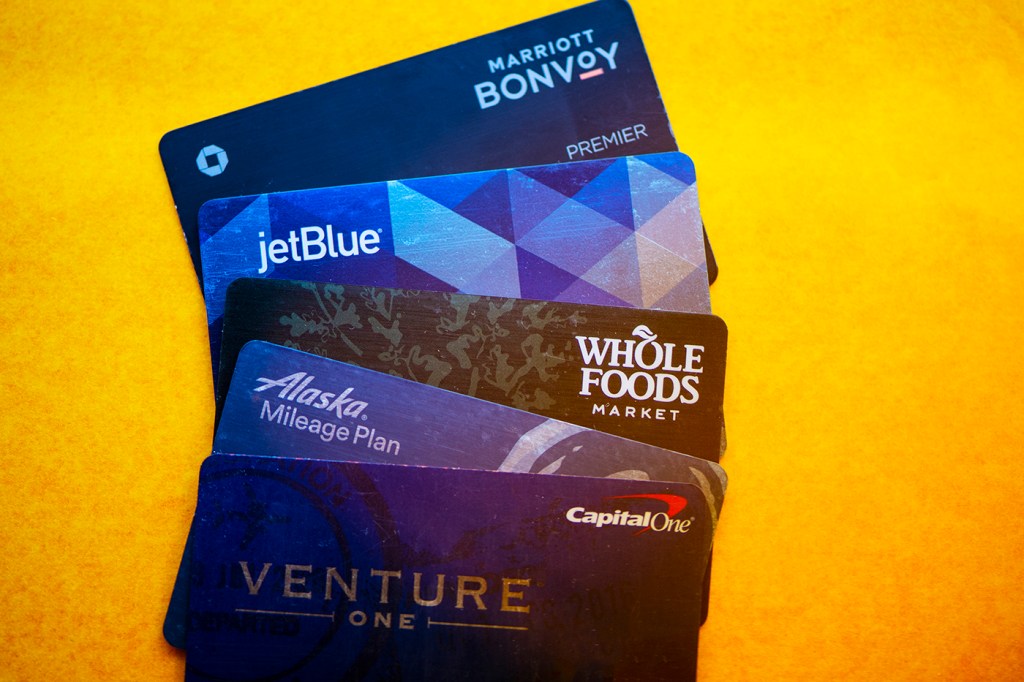Your credit card rewards may be in danger. Here’s why that’s a good thing.

Credit cards that offer airline miles, cash back and other rewards create expenses that are passed on to everyone—including people who don’t use or fail to qualify for credit cards.
It’s one reason why a new credit card bill scheduled for a Senate hearing next week is supported by Robert Triest, chair and professor of economics at Northeastern.

“The current system is essentially causing prices to be higher than consumers otherwise would have to pay,” Triest says.
The bipartisan Credit Card Competition Act seeks to lower consumer prices by weakening the dominant hold of Visa and Mastercard, which control 77% of the U.S. credit card market (alongside industry rivals American Express and Discover). The two giants impose fees that rank among the highest in the world, resulting in more than $77 billion in processing payments by U.S. merchants in 2021.
The legislation is sponsored by Senate Majority Whip Dick Durbin, an Illinois Democrat who previously created savings for consumers with 2010 legislation that put a cap on interchange fees that are paid by merchants on debit card transactions. Triest, in his previous role as vice president and economist at the Federal Reserve Bank of Boston, supervised a consumer payments research center that analyzed that law a dozen years ago.
The new bill aims to reduce the interchange fees for credit cards by increasing competition within the industry. Triest says the new rules would lead to lower costs and a more equitable system that will especially help consumers who don’t qualify for credit cards.
In a conversation with News@Northeastern, Triest explains why consumers should care about the proposed changes—and why credit card rewards may be endangered. His comments have been edited for clarity and brevity.
Why should people worry about transaction fees?
The interchange fees are passed on to consumers. Prices are marked up higher because of these costs that are incurred by merchants whenever people pay with plastic. It adds up like an extra tax on everything that we buy.
You might be asking, “I don’t use plastic, why should I care?” Well, merchants mostly do not differentiate between whether you’re paying by cash or by plastic—they charge the same price to everybody. So even if you’re a cash-only consumer, you’re still paying higher prices because of these interchange fees that banks charge to the retailers.
Occasionally you’ll see gas stations that have a cash price and then another price for when you use a credit card. But those are very rare. Usually the same price is charged to everybody.
What does this have to do with credit card rewards?
In my case, I like to pay for everything with a credit card that gives me a cash-back bonus. The bank charges merchants a hefty interchange fee for processing each transaction, and then the bank kicks back a chunk of that to me in the form of rewards. So I get back a fair amount of money because I use my credit card for everything. And the bank keeps some of the fee revenue as added profit.
But somebody who doesn’t have a credit card—somebody who’s using cash instead—is contributing to those credit card rewards because they’re paying the higher prices that result from the interchange fees. They don’t benefit from the rewards that I get.
People who pay cash are subsidizing the rewards of credit-card users?
Basically that’s true.
Think about people who have low credit scores, who have trouble getting credit cards—they end up paying for those of us who get these premium rewards. The same is true for people who just barely qualify for a very simple credit card but don’t qualify for the fancier ones that pay back the rewards.
So there’s a fundamental inequity that’s embedded in the current system. I love getting my cash-back bonus every month. But it is very inefficient economically and also inequitable because those bonuses accrue to people who have a relatively high income.
The bill proposes that banks must enable retailers to process credit card transactions via a choice of at least two networks—and one of those networks cannot be Visa or Mastercard. How would the new system work?
If this legislation passes then the Federal Reserve would issue regulations within one year. How it’s going to work isn’t entirely clear.
What is quite clear is that the intent is to offer competition. The banks can’t just be offering a choice between processing by either Visa or Mastercard. There could be new [less-expensive] networks that arise to undercut the four main players in the credit card market.
For media inquiries, please contact media@northeastern.edu.






